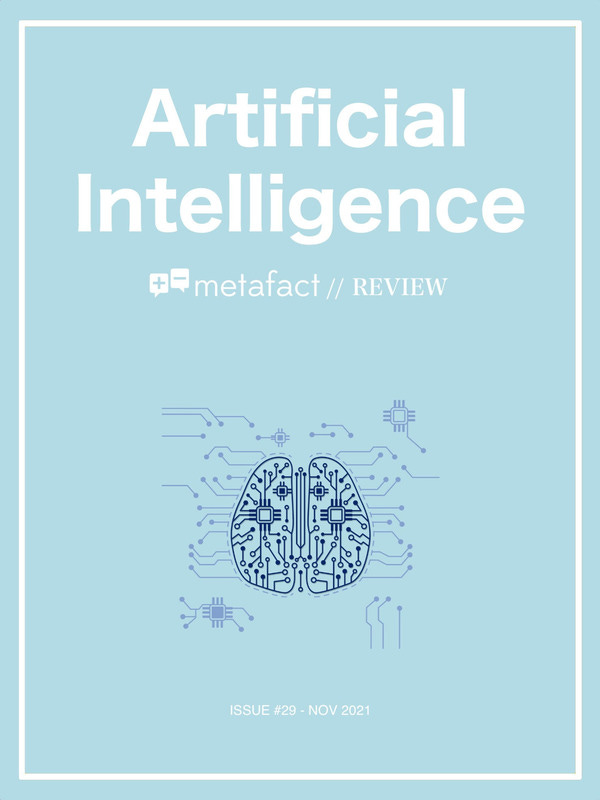Can AIs feel emotions?
Hello everyone,
AI or artificial intelligence is becoming increasingly prevalent in our daily lives. Whilst simple forms of AI perform limited tasks such as filtering spam email, more complex AI programmes such as chatbots can be communicated with almost as though they are humans. One of the more recent chatbots called ChatGPT has the ability to write articles, fix code bugs and even come up with new recipes. The impact that these advanced AIs will have on our future is not yet clear, and some countries have responded by restricting or banning some chatbots entirely.
When you interact with a chatbot, it seems to reply like a human, but is there any sign that these AIs have human emotions? To answer this we asked 7 experts in AI, computer science and mathematics, ‘Can AIs feel emotion?’, this is what they said…
EXPERT CONSENSUS
Can AIs feel emotions?
4 of 7 experts say ‘no’
How do chatbots work?
In simple terms, chatbots use AI algorithms to mine huge amounts of data (including everything available on the internet) to respond to prompts which are typed to them by a user. Importantly, chatbots learn through communication, and respond to feedback from the user. They have been developed to respond to prompts in a natural way, simulating human conversation.
How can we know if something feels emotion?
Professor Roman Yampolskiy, an expert in computer science and AI from Louisville University in the USA, simply says “it is not obvious how that can be measured”
Currently, there is not clear way to define if something or someone feels emotion. This makes it very difficult to determine whether AI feels emotions.
Emotions are intrinsically connected with personal experience. Professor Scott Fahlman, an expert in AI from Carnegie Mellon University in the USA, says “I know that I feel emotions -- I can feel them. Other humans claim to feel emotions similar to mine, and appear to act in emotional ways similar to what I would do. I am inclined to give them the benefit of the doubt. It's possible to make an AI system, or even a simple ‘chatbot’ claim and appear to feel similar emotions in similar circumstances. We may or may not want to accept those emotions as genuine. I think that these are as real as your emotions (though probably much simpler), but not as real (to me) as my emotions.”
Can AI mimic human emotions?
In order to improve convenience and accessibility, many AI programmes have been created to simulate human behaviour and emotions.
Dr David Tuffley, an expert in AI from Griffith University in Australia says AI “can simulate emotion. This is so-called ‘affective computing’ and it is a rapidly developing discipline to create anthropomorphic AI for use in life-like androids and as disembodied voices on Google Assistant, Amazon’s Alexa, or Microsoft’s Cortana.”
AI can mimic human emotions through a variety of means. Opinion mining (also called sentiment analysis) allows AI programs to detect whether statements (for example reviews on a product) are positive or negative. AIs are also able to recognise human faces and are beginning to be able to recognise emotions through facial expressions.
Professor Kate Saenko, an expert in computer science and AI from Boston University in the USA, says “AI can be programmed to mimic emotions, for example, a synthetic AI-based avatar can produce facial expressions like smiling.”
Do the experts think AI can feel emotions?
Despite these complexities in defining whether something feels emotions or not, 4 out of 7 experts answered that they thought AI cannot feel emotions.
Professor Kay Kirkpatrick, an expert in mathematics and AI from Illinois University in the USA, says “Probably not. The best supercomputers of the 2020s have maybe the computational power of a lobster, and there's evidence that emotions are linked to embodiment for animals, so there's a good chance that AIs as they currently exist cannot feel emotions.”
Professor Mark Lee, a computer science expert from Aberystwyth University in Scotland agrees, saying “No. AI systems can detect emotions when looking at human faces. They can analyse gestures, posture, and tiny facial muscle movements to build up a picture of an emotional state. But they cannot feel emotions themselves. Feelings are a specific feature of animal life and emotions are part of being human. Of course, it's always possible to write a program that simulates a type of behaviour but that's just a trick. It makes no sense to say that a computer feels agony, disgust or grief. How could a computer care for another (computer or person)? Some would say that emotional states can only arise in systems that have a body, but even with bodies I have argued (in my book: "How to Grow a Robot") that robots will never feel emotions like we do.”
The takeaway:
Despite ongoing debate, the currently consensus is that AIs do not currently feel emotions.
May the facts be with you!
Eva
Is AI an existential threat to humanity?
Learn more about artificial intelligence with our deep-diving review.
If you like our newsletters you can make a donation to support our work here at Metafact.
Verified by Metafact is a reader-supported publication. To receive new posts and support my work, consider becoming a free or paid subscriber.

